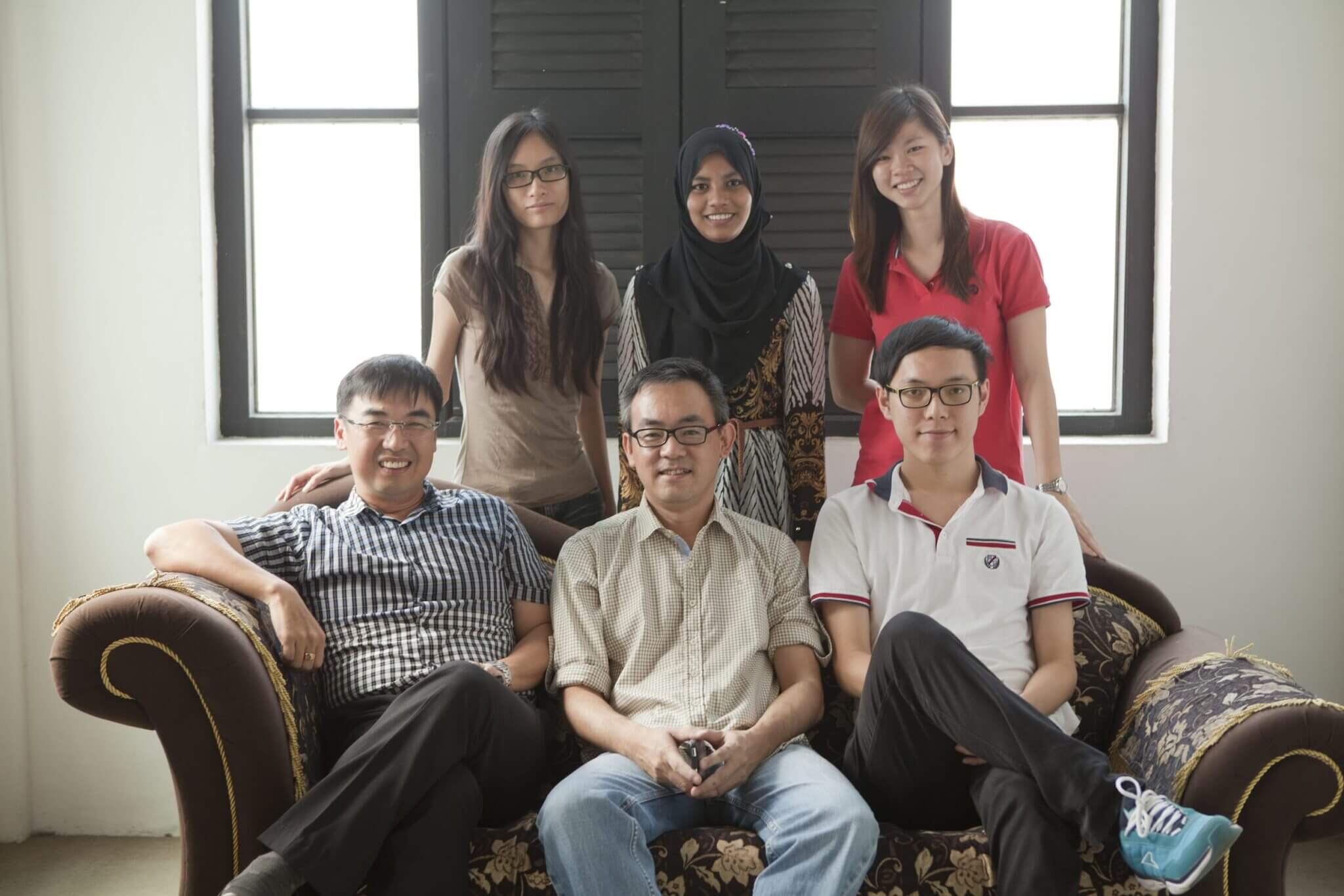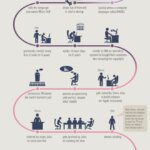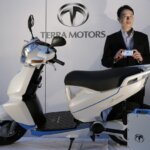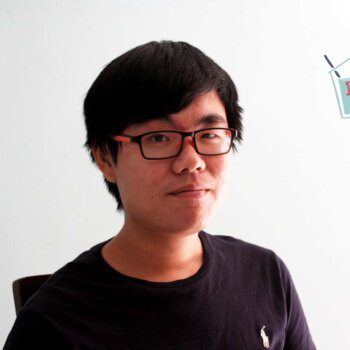Thomas is an electrical and electronics engineer by training, having been educated at the French Singapore Institute, graduating as a second top student. Upon declining offers for further studies in France, he has always been interested in entrepreneurship, and spent 15 years as an engineer designing automation systems for factories before starting his own software company.
What exactly is Radica?
Radica produces high productivity software for diagramming and engineering usage, concentrating on ease of use.
How did you come up with the idea of Radica?
We were electrical engineers back then, and was automating the software for own personal usage. At one time, we were requested to bid for a large project and decided to automate our own software further. Upon hearing that we have failed to obtain the large project, we found that we have a pretty good software on our hands, and decided to put it up on a website to see if anyone will find it useful. Three weeks after that, we have our first sales, and began to develop the software until what it is today. Therefore, it is sort of an accident rather than a preplanned idea when we first decided to set up Radica software.
Could you walk us through the process of starting up Radica?
At the time, there were no funding and no start-up ecosystem, so during those days we were cash-strapped but remained confident that our software will be useful to all electrical engineers worldwide. My partner, Mr Woo Ah Kek, invested a small sum of money, and with his help, we began to flourish as a company. Our principle has always been to produce easy to use software that would greatly benefit engineers, so we concentrated on that, and this principle continues to this day.
Could you walk us through the process of developing Radica?
The initial target was to automate some of the processes involved in creating electrical circuits, and although they are many obstacles, we soon find that our software is able to help the electrical engineer complete circuits far faster and easier compared to conventional methods. Soon, we found ourselves innovating, and incorporated these innovations into the software for even better results. At this time, we are releasing new features to current customers practically every month, but we’re still placing ease of use as our top priority, and sometimes simplify our software even further.
A critical component of our development is listening to our customers, whereby all our developers are required to answer support questions from customers. This allow our developers to understand the problems that our customers is facing, how they are using our software and how we can make even better software. We constantly and actively solicit feedback from our customers to ensure that we make the best software for them.
Did you find anything particularly difficult during the startup? How did you overcome it?
Although they are many obstacles, I wouldn’t classify anything is particularly difficult. Perhaps one of the challenges that remains challenging until today, is to convince Malaysians that we are capable of producing world-class software solutions. As we gain traction, and attention from the media, with the exposure, we are hopeful that many more Malaysians will be aware that we have a solution that can help them be more competitive regionally or even worldwide.
What was the initial response you received from the market?
Initially the response was good but definitely nothing to write home about. About three years ago, we made a breakthrough by releasing Electra E6. The new version was far superior, and we begin to see greater adoption of high profile companies, including Jet Propulsion Laboratory (NASA), the US Army and Navy, Ford, Honda, SpaceX and many more. To date, we have sold more than 1000 licences and our software is used in over 42 countries worldwide.
Do you face a lot of competition in this industry? What is your strategy against your competition?
Definitely. Most of our competitors are far larger and well established. Our strategy is actually pretty simple, and that is to offer compelling value to our customers. Everything we do revolves around our customers, and that is the reason we keep listening to our customers, providing them with the best and timely support in the industry and innovating to ensure that our customers get their work done quickly and easily, and the benefits trickle down to the entire organisation and greatly improving their bottom line. We also believe that we have the best product for the task worldwide, and therefore have a laser like focus on doing one thing, and one thing well.
Have you developed any industry insights that you could share?
We believe the industry is ripe for some disruption, and the world has changed. Today, almost everyone has tablets and smart phones, and social media is prevalent, and all these are going to change the way we work. The challenge is, to use all this technology and to find a way that could benefit our customers even more.
How have you managed to stay relevant in this industry?
We keep abreast of new technologies all the time, and is one of the first company in this industry to offer online trials, downloads and activations, and to display our pricing openly on our website. We have also used new technologies to list and display electrical, pneumatic and hydraulic symbols interactively on our website. The key, is not to adopt technology blindly but rather, finding ways and innovation to use technology to provide even more value to our customers.
What is the future of the industry in your opinion?
We believe the industry will get more social and cloud computing to play a large role.
Were there anything that disappointed you initially?
Not that I am aware of.
What do you think about being an entrepreneur in Asia?
I believe it is definitely harder being an entrepreneur in Asia for a number reasons. The first is cultural, for example, it is almost unthinkable for young men or women to quit college and start a business, and once you graduate, it is expected that you begin to contribute to support your parents and siblings. The second is the ecosystem, whereby undeniably the ecosystem in Asia is not as developed as that in Western countries, and therefore access to information, funding and talents would be comparatively challenging. The third is infrastructure, including broadband and mobile penetration, payment systems and government policies.
Fortunately, all these things are improving by leaps and bounds in Asia and the next few years are going to be very exciting.
What are some personal principles or personal values that guide you and your career?
Personally it is hard work. In school, I would be considered average and had to work doubly hard to achieve the results of my smarter peers. Even now, I still consider myself average, and continues to work even harder.
What is your definition of success?
I am extremely fortunate to have the opportunity to create a product that can help others to work easier and faster and to improve their bottom line. I consider myself a success only when others are successful. This applies to our customers but more importantly it also applies to the entire team in my company. When our customers are happy and our team are happy making our customers happy, I would surely consider it a success.
Why did you decide to become an entrepreneur?
I was interested in business from a young age, and wanted to make a difference, however small that difference may be. Entrepreneurship is probably the only avenue that is available to me personally, to amplify that difference.
What do you think are the most important things entrepreneurs should keep in mind?
Entrepreneurship is not for everybody, but once you have chosen this road, it is extremely important that you do something you’re passionate about. Rest assured, there will be bad times, but the passion will sustain you through it. Hopefully, there will be good times, and the passion will ensure you’re firmly grounded and focus on things that are really important. For me personally, it is the journey rather than the destination.
In your opinion, what are the keys to entrepreneurial success?
I believe humility, hard work and attitude are extremely important. Humility ensure that you are humble, as you will seek out help and surround yourself with talents, as you would surely not know all the answers. All success and luck are attracted to hard work, and there is no replacement for working hard. Attitude allow you to see things differently and act accordingly, where others might see problems, you may see opportunity.
Any parting words of wisdom for entrepreneurs out there?
Entrepreneurship is undeniably hard. The chances of success is very low, therefore it is critical to concentrate and focus on what you do well. It takes time, therefore be patient. It’s a journey, enjoy it.
Connect
Website: http://radicasoftware.com
Facebook: https://www.facebook.com/






























